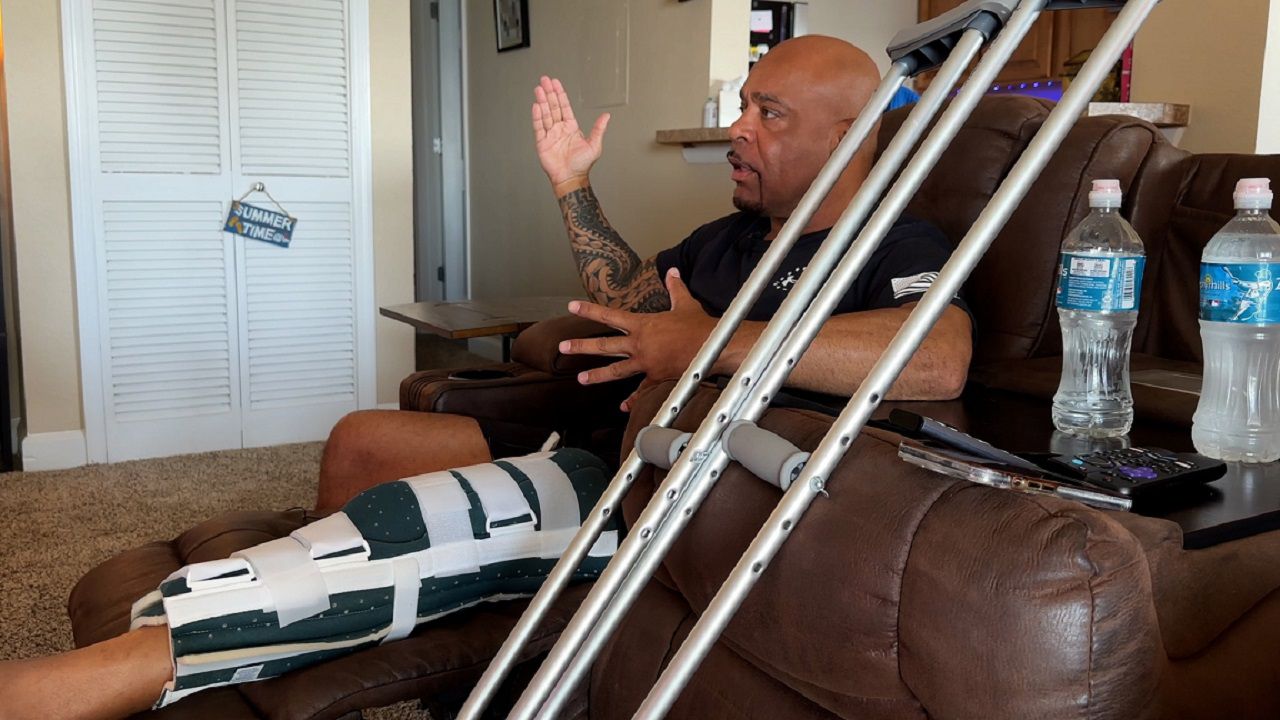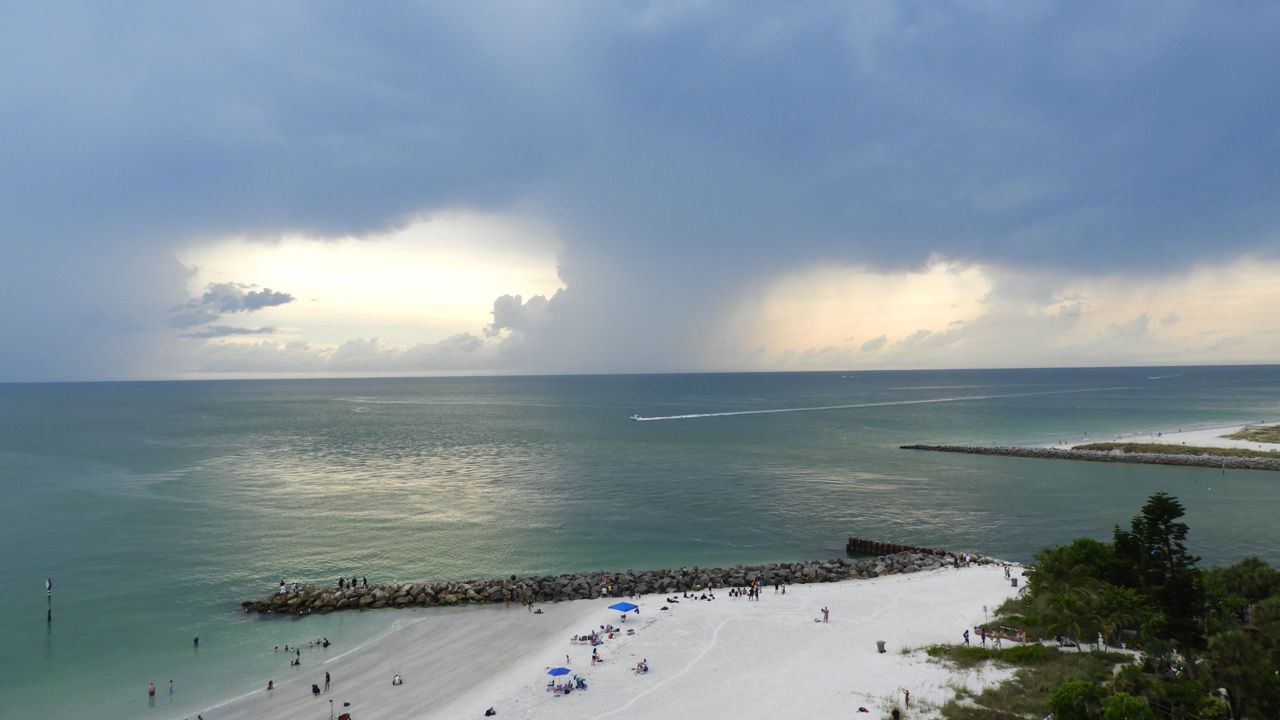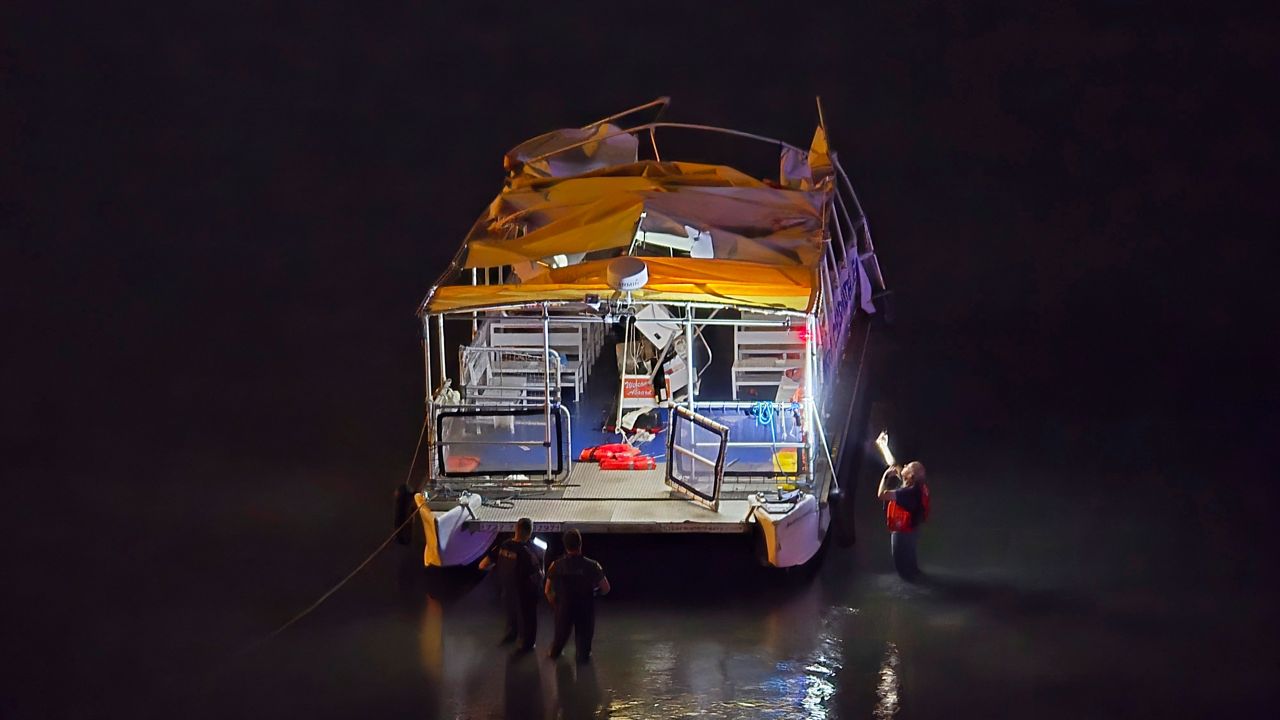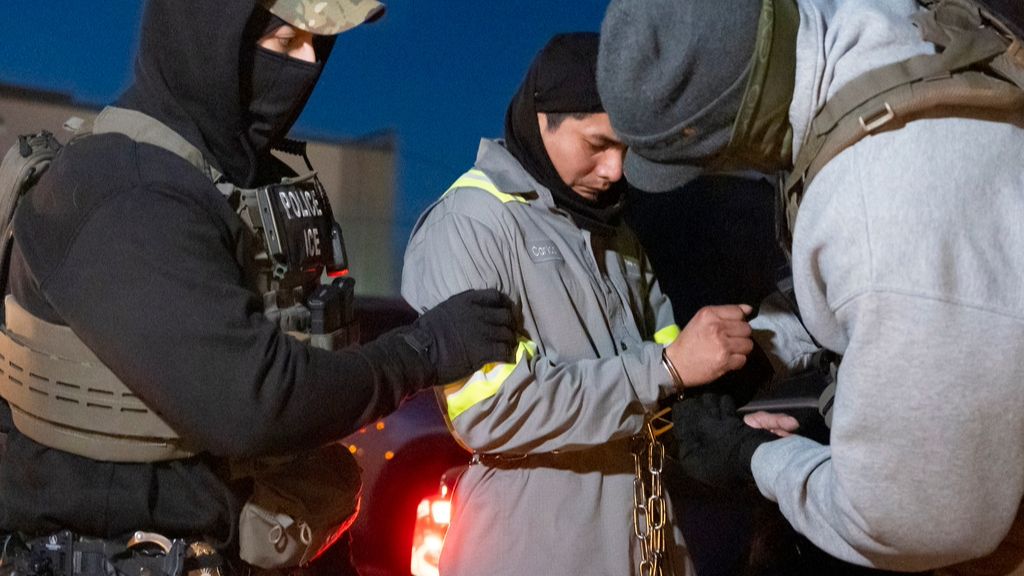ST. PETERSBURG, Fla. — Birds In Helping Hands has rescued several chicks, including great blue herons, from 7 nests that were cut down by tree trimming companies in the past week in Pinellas County, according to founder Shelley Vickery.
“It’s bad every year but I think it’s worse this year because the hurricanes compromised a lot of the trees,” she said. “We’ve had several casualties.”
Vickery said she took two baby great blue heron to the Seaside Seabird Sanctuary for rehabilitation. Avian Hospital Director Melissa Edwards said those herons are about 5 weeks old.
“They came from an area in St. Petersburg after a live oak tree was cut down,” she said. “They’re doing well, but of course they’d be much better off with mom and dad.”
Edwards said on Wednesday two baby wood peckers arrived at the sanctuary after their nest was cut down too.
“They’re another one that was actually left kind of on the ground, within the tree trimming, the branches,” she said. “Thankfully, someone just happened to be biking by and heard them and brought them in.”
Leaving birds at the bottom of trees, in the sun, is a death sentence, according to the rescue group. Edwards said many people don’t realize the adult birds won’t carry their chicks back up to the nest.
“The best thing to do if you do come across babies that have been displaced is to call a rehabilitator right away,” she said. “You want to put them in a box that’s well-ventilated, in the shade, in a warm, dark, quiet area.”
Some examples include basket or plastic containers with holes on the bottom, sprinkled with pine needles or sticks for the chicks to hold on to.
The Birds In Helping Hands founder said tree trimmers should know it’s illegal to cut down most bird nests. Officer Bradley Johnson, with the Florida Fish and Wildlife Conservation Commission, said a migratory bird nest removal permit or incidental take permit must be obtained to remove the best of a state listed bird species.
“All native bird species are protected under the federal Migratory Bird Treaty Act (MBTA), regardless of whether they migrate,” he stated. “Take of these birds, their eggs, active nests, or young is not permitted without proper authorization.”
Vickery said she understands mistakes are made and tree trimmers call the rescue group for help.
“We’re trying to work with them and sometimes they don’t see them,” she said. “We’re here to help and ask that the tree trimmers check the cavities first and don’t throw away the part of the tree that has the cavity. We can save it and attach to a nearby tree.”
Aaron Tonry, the owner of Element Tree Care, said he refuses to cut down a tree with an active nest. Tonry said customers are agreeable once he explains the situation.
“Let’s hold off on this. We got birds nesting. Then to be able to back it up with the law, the clients are always like, ‘cool, awesome,’” he said. “I am glad you… weren’t that guy just cutting for money.”
Edwards said she hopes other tree trimmers take greater care during nesting season, which runs from March to August.
“The best thing to do, though, is to just try not to trim your trees during this time of year,” she said. “The best time is normally November through February, where you won’t necessarily run into all of these issues.”
Birds In Helping Hands responds to bird rescue calls at (727)365-4592 in Hillsborough, Pasco, and Pinellas Counties.









